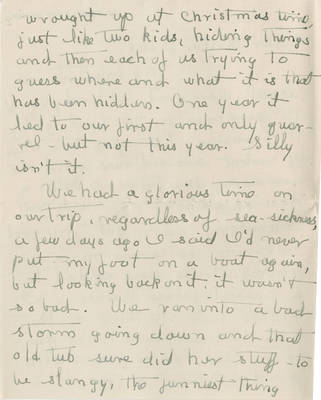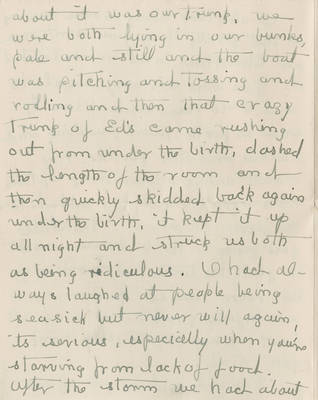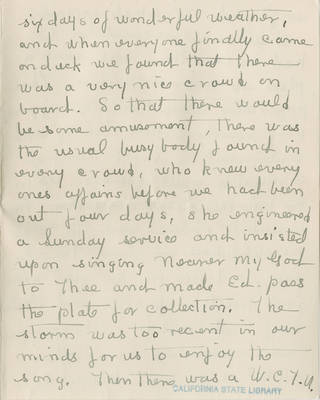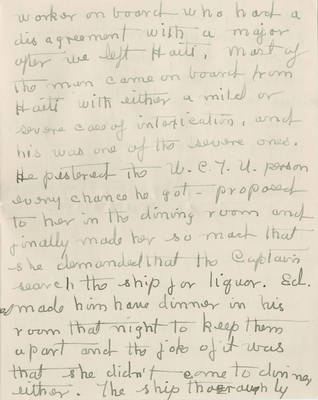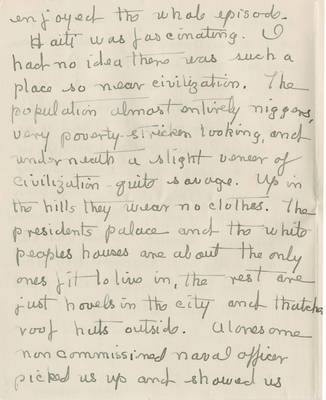Pages
CEHBates_1918-1926_018e
wrought up at Christmas time, just like two kids, hiding things and then each of us trying to guess where and what it is that has been hidden. One year it led to our first and only quarrel – but not this year. Silly isn't it.
We had a glorious time on our trip, regardless of sea-sickness, a few days ago I said I'd never put my foot on a boat again, but looking back on it, it wasn't so bad. We ran into a bad storm going down and that old tub sure did her stuff – to be slangy, the funniest thing
CEHBates_1918-1926_018f
about it was our trunk, we were both lying in our bunks, pale and still and the boat was pitching and tossing and rolling and then that crazy trunk of Ed's came rushing out from under the birth, dashed the length of the room and then quickly skidded back again under the birth, it kept up all night and struck us both as being ridiculous. I had always laughed at people being seasick but never will again, its serious, especially when you're starving from lack of food.
After the storm we had about
CEHBates_1918-1926_018g
six days of wonderful weather, and when everyone finally came on deck we found that there was a very nice crowd on board. So that there would be some amusement, there was the usual busy body found in every crowd, who knew every ones affairs before we had been out four days, she engineered a Sunday service and insisted upon singing Nearer My God to Thee and made Ed. pass the plate for collection. The storm was too recent in our minds for us to enjoy the song. Then there was a W.C.T.U. [Woman's Christian Temperance Union]
CEHBates_1918-1926_018h
worker on board – who had a disagreement with a major after we left Haiti, most of the men came on board from Haiti with either a mild or severe case of intoxication, and his was one of the severe ones. He pestered the W.C.T.U. person every chance he got – proposed to her in the dining room and finally made her so mad that she demanded that the Captain search the ship for liquor. Ed. made him have dinner in his room that night to keep them apart and the joke of it was that she didn't come to dinner either. The ship thoroughly
CEHBates_1918-1926_018i
enjoyed the whole episode.
Haiti was fascinating. I had no idea there was such a place so near civilization. The population almost entirely niggers, very poverty-stricken looking, and underneath a slight veneer of civilization – quite savage. Up in the hills they wear no clothes. The presidents palace and the white peoples houses are about the only ones fit to live in, the rest are just hovels in the city and thatched roof huts outside. A lonesome noncommissioned naval officer picked us up and showed us
